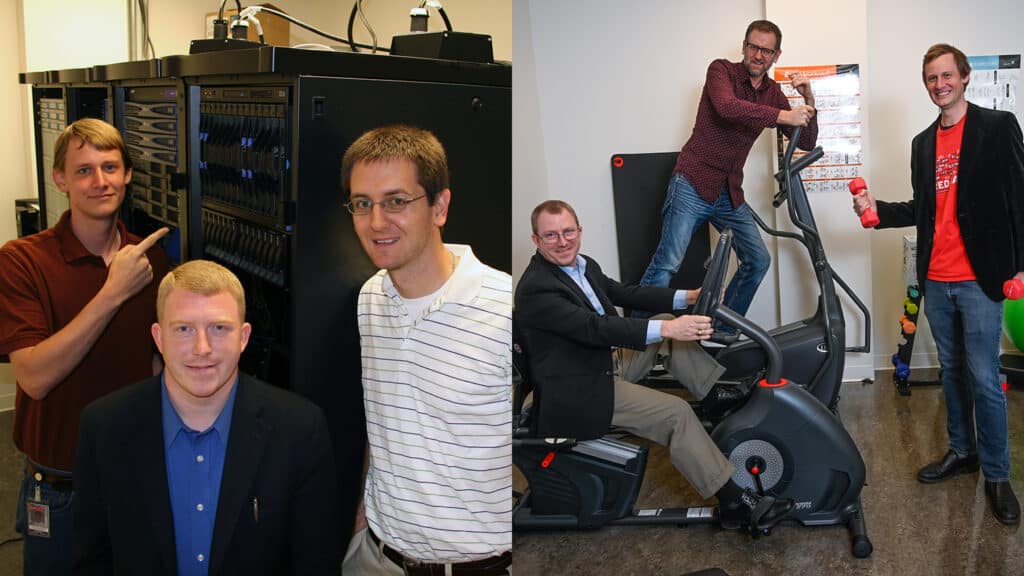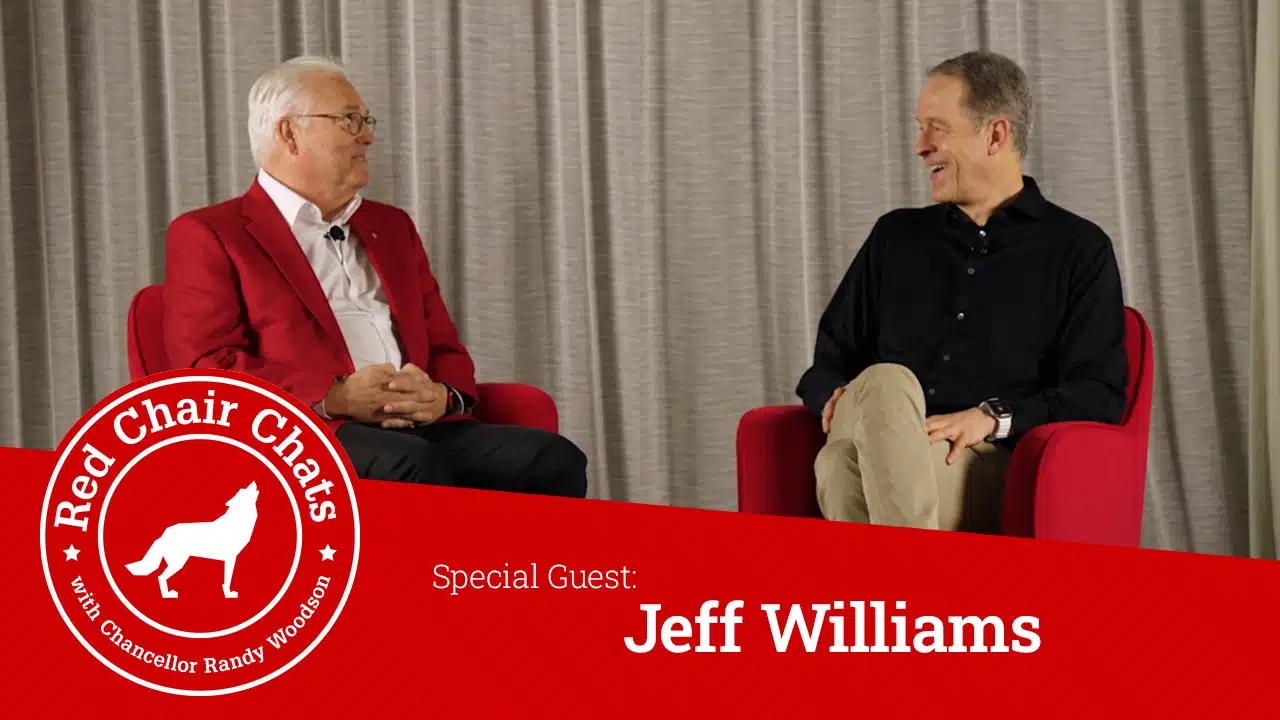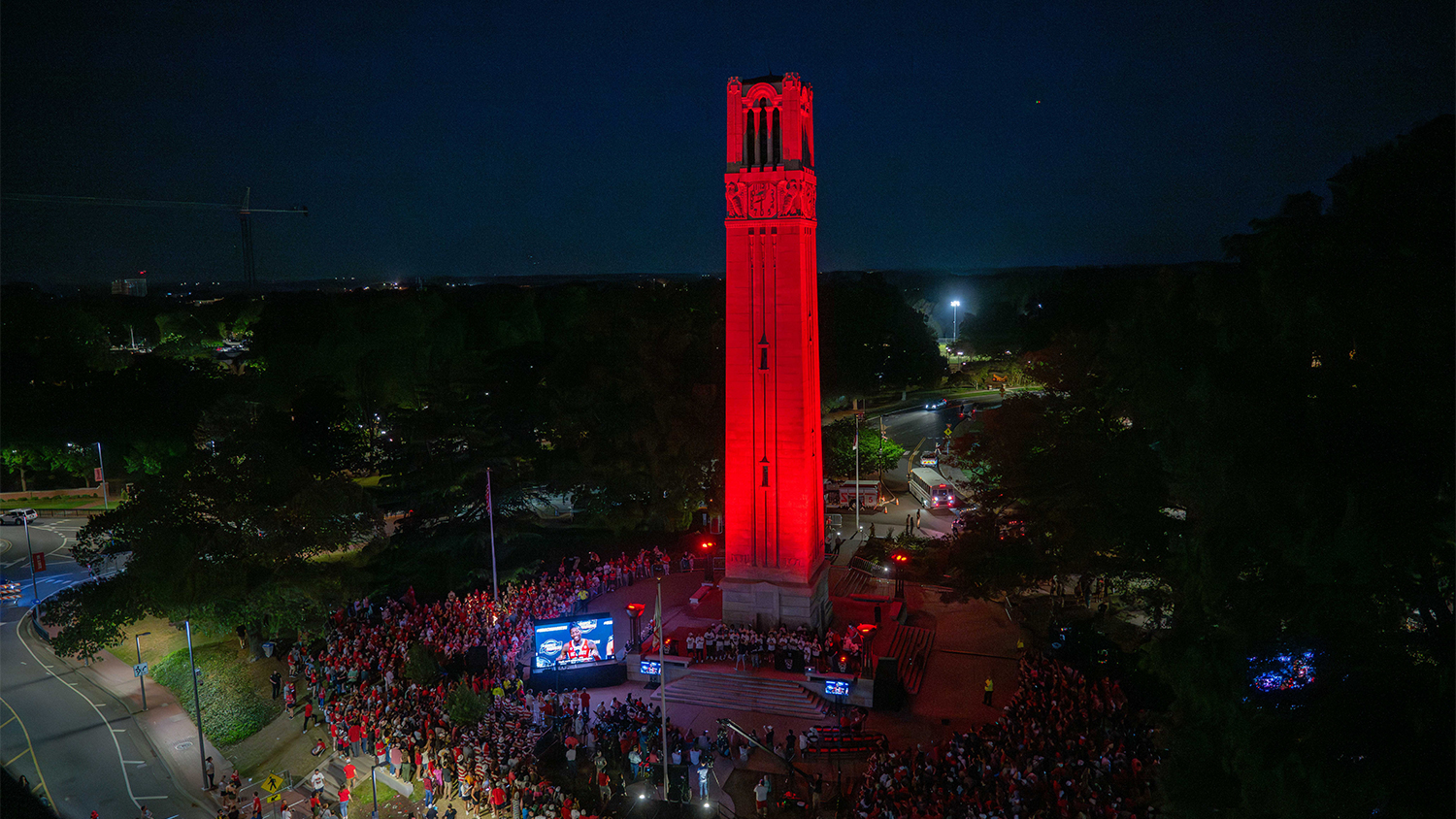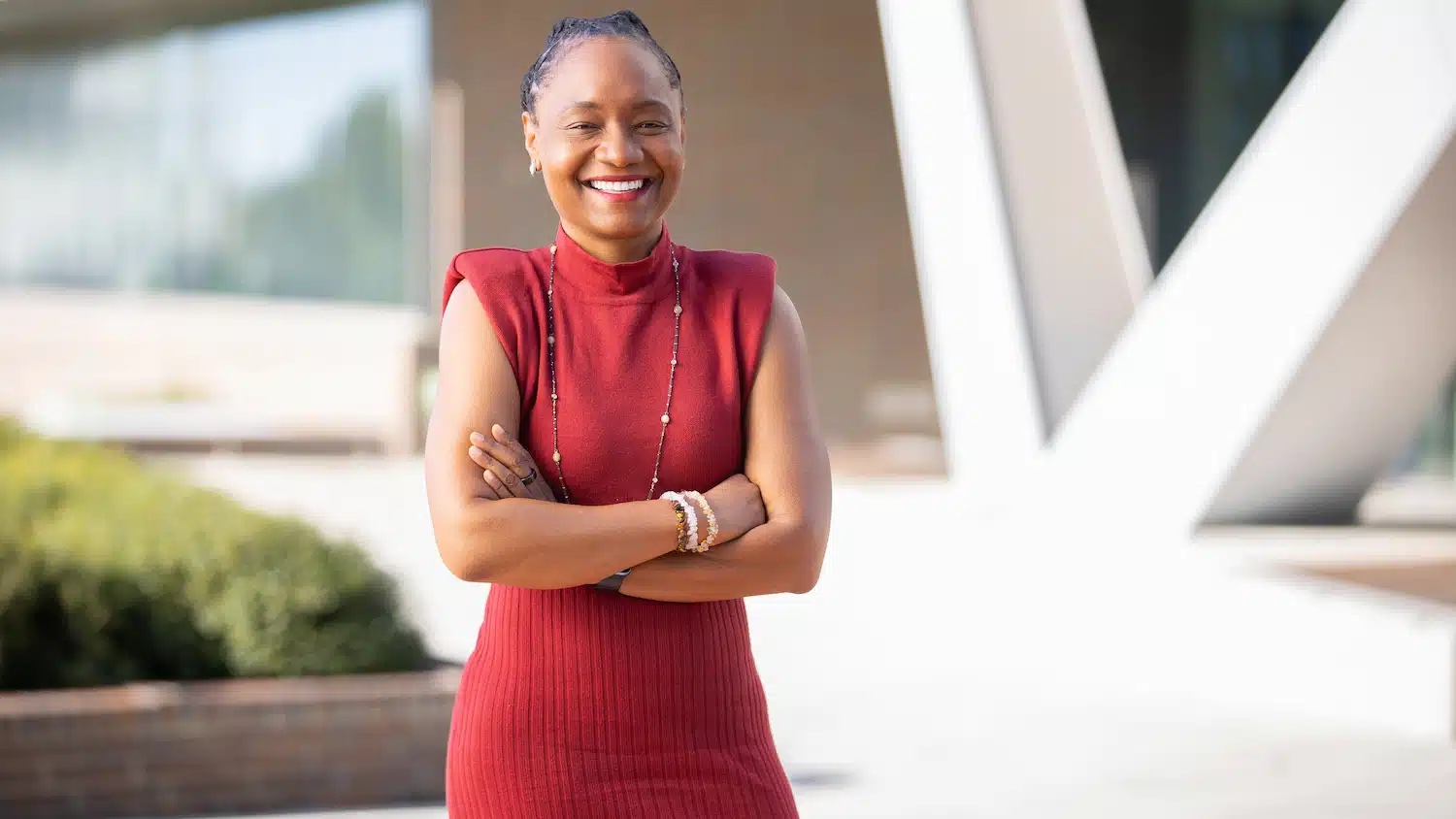Serious fun
Three staffers almost went viral in 2007 with a catchy music video promoting the benefits of VMware's virtualization software. It turns out that the educational innovation behind the one-hit wonder improved computer access for K-12 students across the state.

In the fall of 2007 three staff members in the technology group at the Friday Institute made a splash at an industry conference in San Francisco hosted by the pioneering cloud-computing company VMware. The trio captured the hearts and minds of the audience with a decidedly low-tech music video extolling the virtues of the company’s “virtualized hardware hotel.”
The video took first place in a contest sponsored by VMware as part of the conference, earning the team prize money and a few moments of on-stage glory.
It seemed like the perfect story to feature at the top of the premiere issue of the electronic version of the Bulletin, NC State’s weekly newsletter for faculty and staff.
“Ever feel like bursting into song at work? The guys in the technology group at the Friday Institute did and now they’re virtually world famous,” I wrote, perhaps overselling the impact of the catchy video on the quickly evolving social media landscape.
Sadly, only 99 recipients of the email newsletter clicked on the link to the story, suggesting that my editorial judgment was somewhat out of sync with my 9,000 potential readers.
Thankfully, the story didn’t end there.
Sammie Carter, who returned to the Friday Institute in 2021 as a systems architect after seven years in the private sector, was the institute’s technology director in 2007 when he participated in the video with colleagues Brian Bouterse and Lodge McCammon.
“I hate to minimize it, but it wasn’t something we put a lot of effort into,” he says. “We did it in one take.”
Big Ideas, Thin Clients
It was the technology behind the music, it turns out, that kept the team busy. They were using software tools from companies like VMware, Cisco and NetApp in a groundbreaking effort to improve K-12 access to computers across North Carolina.
The idea was simple, albeit challenging to implement.
“We wanted to provide every student in North Carolina with a computer, but the schools couldn’t afford that,” he says. “So, using VMware and other technologies, we had this idea that we could create a virtual computer to give to every student.”
Many schools had older computers with minimal memory, low-capacity hard drives and outdated operating systems, he explains. Where the schools saw obsolete hardware that had outlasted its life span, the technology team saw the backbone of a virtual computer network.
In the network they developed, computer processing was done remotely on servers located inside the Friday Institute. The computers in the classroom — called “thin clients” — just needed a network connection, a bit of RAM and a display.
“We came up with a model of how to provide every student in North Carolina with a virtual machine,” he says. “The backstory of the video is this big experiment we were conducting in educational innovation. That was our mission at the Friday Institute, to push the envelope.”
Then and Now

Carter, Bouterse and McCammon shared a connection to NC State that went beyond their work at the Friday Institute. All three were NC State students or recent graduates, immersed in the university’s core values of collaboration, innovation and service. McCammon joined the institute while earning a Ph.D. in curriculum development. Carter and Bouterse had freshly minted undergraduate degrees in computer science. Bouterse would continue his educational journey at NC State by earning two more degrees: a master’s in computer networking and a Ph.D. in computer science.
“I remember we shared a strong connection to a mission that we all felt really mattered,” says Bouterse, now a principal software engineer at Red Hat. “We were at the intersection of the latest and greatest technology, layered on top of the innovation that was happening at the Friday Institute and partnering with some of the top companies in the world — and we were doing it for the kids.
“I remember such a feeling of excitement, putting that together. It was really fun.”
The trio used the $15,000 prize money they brought home from the contest to expand their work with schools across the state. Some of that work continues, but the virtual network itself is no more. Schools now largely use low-cost Chromebooks in the classroom.
Watch the Video
The multitalented McCammon, who is equally at home composing a musical jingle, editing a video or researching a new teaching method, combined these and other skills over the years as he followed a somewhat unorthodox career path.
He went on to train teachers to use an innovative teaching method called “flipping the classroom” to improve student engagement through technology. That led to considerable media attention, national speaking engagements and a transformational grant that enabled him to expand the work even more. In 2010 he secured a licensing agreement with Discovery Education to write and record three dozen songs for teachers to use in the classroom on topics ranging from math and science to politics.
McCammon now works as a therapeutic humorist, a career move prompted by his efforts to cope with anxiety during his girlfriend’s successful battle with cancer in 2021.
“Instead of getting lost in the sadness, I would spend time writing jokes about going to chemo,” he says. “It was remarkably helpful, so I decided to shift gears. I really want to spend my time and energy building therapeutic humor programs to help people navigate stress, anxiety, frustration, depression, trauma and loss.”
Fifteen years after they shared the stage at the VMworld conference, the video stars recall their days at the Friday Institute with a mixture of pride and nostalgia.
“I miss those days,” Carter says. “We had no fear. We just looked for the next cool, neat thing we could do and took a lot of chances.”
“And we did a lot of good work,” Bouterse adds. “What could be better?”
This post was originally published in NC State News.
- Categories:


